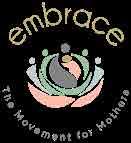ESCAPING THE INEQUALITY TRAP: THE CASE FOR SUPPORTING PREGNANT WOMEN _


South Africa is stuck in an inequality trap with too few people able to build the knowledge and skills needed to fully participate in society and the economy. Our human capital pipeline is throttled at source, as high rates of low birth weight, stunting and inadequate access to early learning opportunities mean many children enter school with enduring learning deficits. They are likely to join the 300 0001 learners that drop out of school annually; perpetuating inter generational cycles of social and economic exclusion. Stop and think about it: we already know that, without a major change in the way we treat our children, many of the babies born in South Africa today have no chance of fulfilling their human potential!
This learning brief will show how, and why, improved support for pregnant women can help address malnutrition and stunting in the critical first 1 000 days of a child’s life, thereby changing a child’s development trajectory.
South Africa is the most unequal country in the world –80% of wealth is in the hands of 10% of the population and women earn 30% less than men with the same level of education.2 According to South Africa’s Living Conditions Survey, 52.2% of women fall below the upper-bound poverty line, compared with 46.1% of men.3 Additionally, research shows that 74.8% of women-led households fall below the upper-bound poverty line. Grow Great, a national campaign that seeks to galvanise South Africa towards a national commitment to zero stunting by 2030, says only a quarter of the approximately 1.2 million women who become pregnant annually have any source of income.
Stunting is a (largely preventable) condition where young children are short for their age and do not reach their full growth potential due to chronic nutritional deprivation, repeated infections and poor psycho-social stimulation. Stunting is associated with lifelong cognitive defects, educational and employment challenges, increased risk of chronic diseases in adulthood and cycles of inter-generational poverty.

2 Africanews with AFP. 2022. South Africa: The most unequal country in the world. Africanews, 10 March. https://www.africanews.com/2022/03/10/world-bank-southafrica-is-the-most-unequal-country-in-the-world//
3 Stats SA.2018. Men, Women and Children: Findings of the Living Conditions Survey 2014/15. Report 03-10-02. https://www.statssa.gov.za/?page_id=1854& PPN=Report-03-10-02
"Lack of access to socio-economic rights provides the clearest reflection of the levels of systemic poverty, unemploxyment, and inequality in South Africa and demonstrates the persistent recurrence of the cycle of poverty..."South African Human Rights Commission, December 2018
As the cost of food continues to rise, poor households are paying more for less. This deepens food insecurity and places millions of children at risk of stunting. In order to reduce the cost of a carefully chosen basket of commodities by 30% and improve the diet of South Africa’s most underprivileged children, DGMT and its allies in a burgeoning nutrition coalition (including Grow Great) are urging the national government to join manufacturers and retailers, who waive their mark-ups on the 10 “best buy” foods for cash-constrained families, by matching the waivers.4
WHY DO PREGNANT WOMEN NEED SUPPORT?
A review published in The Lancet in 2013 found that maternal undernutrition accounts for about a fifth of all stunting.5 The 2022 provincial survey of child growth and stunting in the Western Cape found that babies who are born with a low birthweight are 2½ times more likely to have stunted growth.6 Typically, low birthweight is associated with undernutrition, maternal stress and other factors such as smoking and drinking alcohol. These interlocking factors are more prevalent in poorer communities, and threaten the well-being of pregnant women living in depressed socio-economic circumstances.
Poverty affects the nutritional status and mental well-being of pregnant women. These are factors that mutually reinforce each other7 and have a knock-on effect on foetal development, which in turn has a knock-on effect on early childhood outcomes (physical, cognitive and psychological).
Decades of structural inequality have concentrated disadvantage among poor, black women, reproducing cycles of racialised, gendered and class inequity. Despite policy and legislation aimed at expanding women’s economic participation, women remain less likely to be employed than men. When women do work, they are concentrated in low-skilled and less secure positions; earning lower wages for work of equal value (about 75% of what their male peers earn).8
According to the National Income Dynamics Study — Coronavirus Rapid Mobile Survey (NIDS-CRAM), women experienced slower financial recovery than men as the economy reopened after the national lockdown. Of the women who were employed pre-Covid, only 47% stayed employed across cycles of the pandemic.9 Women were also more likely than men to increase the hours they spent on childcare with the closing of schools and early childhood development centres, which showed that women tend to take on a bigger share of the responsibility of looking after children in the home. This also meant that many were prevented from working the same hours they were able to work before the Covid-19 lockdown, and were delayed or prevented from returning to their jobs or finding employment.
Pregnancy simultaneously reduces women’s income-generating potential and brings with it several financial responsibilities. Julie Mentor, project lead of Embrace, a national movement for supported and celebrated motherhood, points out that a lack of affordable childcare creates significant barriers to looking for work and continuing to work.
4 Harrison, D. 2023. Why Supermarkets should slash the price of these 10 foods. Financial Mail, 2 March. https://www.businesslive.co.za/fm/fm-fox/2023-03-02-whysupermarkets-should-slash-the-price-of-these-10-foods/
5 Black R.E., Victora C.G., Walker S.P., Bhutta Z.A, Christian P. de Onis M., et al.; the Maternal and Child Nutrition Study Group. Maternal and child undernutrition and overweight in low-income and middle-income countries. Lancet 2013: 371:243–60. doi:10.1016/S0140-6736(13)60937-X.
6 Western Cape Dept of Health and DG Murray Trust (2023). Western Cape Stunting Baseline Survey on under-5-yr-old children.
7 Field, S., Honikman, S. and Laurenzi, C.2020. Food Insecurity, Maternal Mental Health, and Domestic Violence: A Call for a Syndemic Approach to Research and Interventions. Maternal and Child Health Journal 24, p 401–404 https://doi.org/10.1007/s10995-01902872-8
8 Realising women’s rights for an equal future on Women’s Day. StatsSA. 9 August 2021. https://www.statssa.gov.za/?p=14559
9 Casale, D. and Shepherd, D. 2021. Gendered employment dynamics during the Covid-19 pandemic. National Income Dynamics Study (NIDS) – Coronavirus Rapid Mobile Survey (CRAM) https://cramsurvey.org/wp-content/uploads/2021/05/4.-CasaleD.-_-Shepherd-D.-2021-Gendered-employment-dynamics-during-the-Covid-19pandemic-Evidence-from-four-waves-of-a-South-African-longitudinal-survey.pdf
1PREGNANT WOMEN ARE FINANCIALLY VULNERABLE
WHAT DO EXISTING SOCIAL SAFETY NETS LOOK LIKE?

South Africa offers a child support grant to poor and vulnerable families, but this grant is only available once the infant is born, missing a critical window of opportunity in pregnancy when brain development is happening and when pregnant women are especially vulnerable to unemployment. At the moment employed female contributors can apply to the Unemployment Insurance Fund to receive maternity benefits when they go on maternity leave. To qualify for the benefits, they must receive less than their normal wages while on maternity leave.10
There is also the Social Relief of Distress (SRD) grant of R350 per month for six months to be paid to individuals who are currently unemployed, and do not receive any form of income, social grant or UIF payment etc. In his State of the Nation speech in February 2023, President Cyril Ramaphosa said that work was under way to develop “targeted basic income support” known as the Basic Income Grant (BIG) in South Africa – separate from the temporary SRD grant, which would be extended. At R350, the cost of the grant would range from R27 billion (if offered to original SRD recipients) to R252 billion if offered to everyone in the country (universal grant).11
Mentor believes South Africa needs a comprehensive and efficient social security system that caters to women who are self-employed and employed in the informal economy.
2THEIR CHILD IS AT RISK OF STUNTING
The World Bank considers stunting to be one of the most serious, but least-addressed, problems in the world.12 It affects the development of more than a quarter of South African children under five years old.13 The impact of the Covid-19 pandemic and resulting hunger crisis is expected to exacerbate stunting globally, increasing the need for critical nutritional services among children by 15% and placing an additional 1.7 million South African children at risk for stunting by 2025.14
Dr Edzani Mphaphuli, Grow Great executive director, says the time of greatest vulnerability to stunting is the first 1 000 days of a child’s life. “It’s a time when brain development is happening, so [it offers] an opportunity to establish a foundation for children’s academic success, health, and general well-being but it is also a time when the brain is most sensitive to poor nutrition and toxic stress.” How well or how poorly mothers and children are nourished and cared for during the first 1 000 days has a profound impact on a child’s ability to grow, learn and thrive. But sadly, in our context, the first 1 000 days is a time of great vulnerability for many of South Africa’s women and children.
10 https://www.gov.za/services/uif/maternity-benefits-uif#:~:text=As%20an%20 employed%20female%20contributor,you%20are%20on%20maternity%20leave.
11 Basic income grant for South Africa is coming. Business Tech. 9 February 2023. https://businesstech.co.za/news/government/663607/ramaphosa-confirms-basicincome-grant-for-south-africa-is-coming/#:~:text=Most%20proposals%2C%20 however%2C%20fall%20into,month%20for%20all%20unemployed%20adults).
12 The World Bank. 2021. Investing in Nutrition Can Eradicate the “Silent Pandemic” Affecting Millions of Poor Families in the Philippines. Press Release No: 2021/10/PH. https://www.worldbank.org/en/news/press-release/2021/06/15/investing-innutrition-can-eradicate-the-silent-pandemic-affecting-millions-of-poor-families-inthe-philippines-world-ba
13 Stats SA. 2017. South Africa Demographic and Health Survey 2016: Key Indicator Report https://www.statssa.gov.za/publications/Report%2003-00-09/Report%200300-092016.pdf
14 Reddy, S.2021. The 'slow violence' of malnutrition in South Africa. United Nations South Africa. https://southafrica.un.org/en/123531-slow-violence-malnutrition-south-africa








 Learning brief developed by Daniella Horwitz, with contributions from Embrace, Grow Great and the Perinatal Mental Health Project, and edited by Rahima Essop.
Learning brief developed by Daniella Horwitz, with contributions from Embrace, Grow Great and the Perinatal Mental Health Project, and edited by Rahima Essop.


